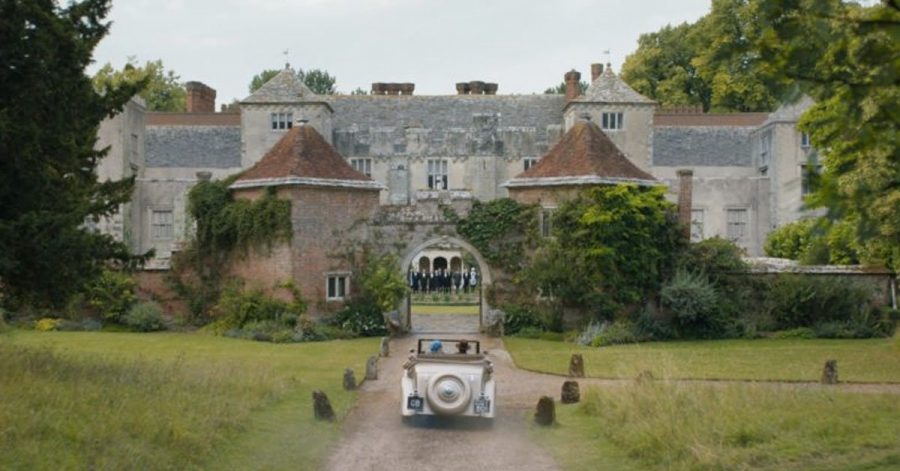Rebecca: Everyone’s Dark Academia Aesthetic
December 2, 2020
You may know the famous first line to Daphne Du Maurier’s novel Rebecca: “Last night I dreamt I went to Manderley again.”
The new Netflix movie with the same name features the nameless protagonist and her marriage to a rich, handsome widower she meets in Monte Carlo. Maxim de Winter, her new husband, takes her back to his seaside mansion after proposing to her. There, the protagonist finds the inhabitants of the mansion plagued by the memories of Maxim’s late wife Rebecca.
What I loved about this movie beyond the plot was the aesthetic. The Monte Carlo whirlwind romance at the beginning of the film was full of sunshine and bright palettes; however, the highlight of the movie was undeniably Manderley, Maxim de Winter’s stunning yet hauntingly sinister mansion. The dark hallways filled with statues and ancient paintings captivated me, and the cliffs overlooking the gray sea gave a mysterious ambiance to the movie.
I found it rather interesting that the protagonist wasn’t given a name. I thought it symbolized how small and insufficient she felt in comparison to the beautiful Rebecca, the woman who was loved by all. Nobody could forget Rebecca’s name (it’s the name of the movie), but nobody could remember the protagonist’s name.
I honestly didn’t expect the plot twist, and the characters’ behaviors were honestly sort of concerning to me. After Maxim confesses that he did not, in fact, love Rebecca, but rather despised her (and murdered her!), the protagonist’s primary reaction was not to run to the other side of the world. Unfazed by the fact that her husband had killed his previous wife and hid her body in the sea, the protagonist is rather relieved that he had never loved her. In the end, though, I understand her reaction. If I were her, so incredibly haunted by the memory of Rebecca to the point of near suicide, I suppose I would also be happy that I didn’t really have to compare myself with her.
One thing that I did expect was the destruction of Manderley by the end of the film. Although the mansion was beautiful, the memories of ghosts and murders would probably make Maxim and his wife miserable. I was disappointed when the housekeeper, Mrs. Danvers, burned Manderley down, but I realized that she was right when she said her final words: “I can’t let you have Manderley. It was ours, you see” (referring to herself and Rebecca).
I also loved that this movie bordered on the supernatural, but it did not at the end. Everybody is haunted by Rebecca’s ghost, but was she really there? Were all the sinister symbols in the film truly supernatural or simply coincidental?
I personally didn’t care much for the plot; I still have no idea what the purpose of some scenes or characters were. However, the cinematography was gorgeous, and I truly felt like I had fallen back to a seaside mansion of the early twentieth century. So I really suggest you go watch Rebecca; if not for the plot, then absolutely for the aesthetic.


















































































































































